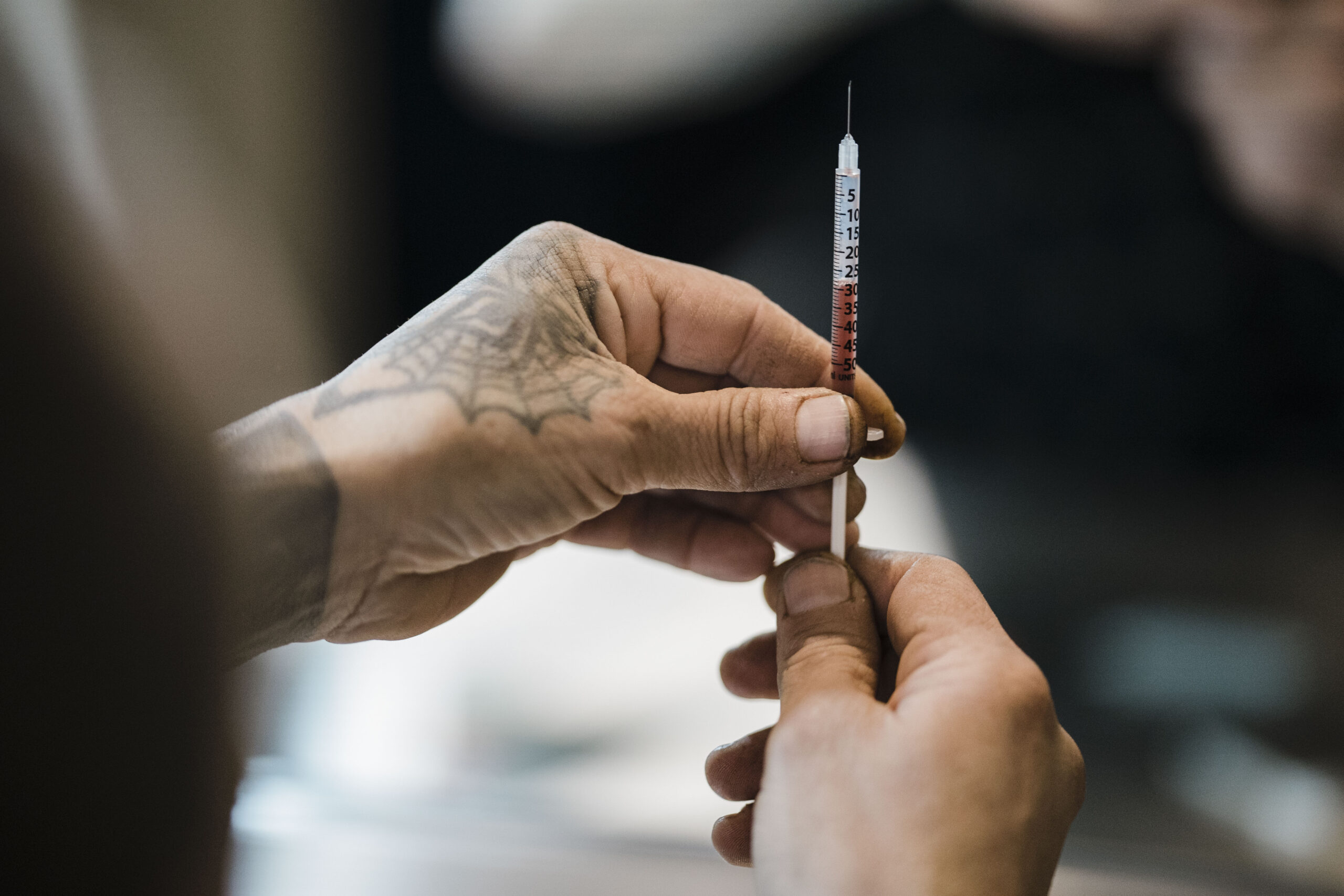San Francisco lawmakers and health leaders say they’re open to “safe supply,” a controversial drug policy that provides regulated access to narcotics.
The first public indication came at a Board of Supervisors hearing on Thursday, when Department of Public Health behavioral health director Hillary Kunins said that the city is looking to broaden access to medically assisted treatment for people suffering from drug dependency. Kunins pointed to Canada and Switzerland, which offer prescription opioids—including heroin and fentanyl—in an effort to stabilize the drug supply and destigmatize drug use.
The health department is looking to the federal government to change laws around the practice, said Kunins.
“In other countries like Canada, like Switzerland, there’s a wider range of medications that are actually from the opioid class that have been found to reduce a person’s use of illicit opioids and to reduce the risk of overdose,” Kunins said on Thursday.
The practice is illegal federally in the U.S. But in subsequent interviews with The Standard, local legislators said they were open to the idea of “safe supply.”
State Senator Scott Wiener, who authored safe consumption legislation recently vetoed by Governor Gavin Newsom, told The Standard that he would support a “well run” safe supply program as long as it’s paired with strong access to treatment.
“We know the goal is to try to get people to use less or to stop entirely,” Wiener said. “I think if it’s done well [safe supply] can be very helpful in keeping people healthy and reducing drug dealing.”
Withdrawal medications such as buprenorphine and methadone are already legal in the U.S. when prescribed for opioid addiction, and advocates on both sides of the drug policy debate have come out in support of utilizing medication-assisted treatment. But the idea of government-regulated narcotics in San Francisco has its critics.
“What is the cartel going to do? Take their ball and go home?” said recovery activist Tom Wolf, an outspoken proponent of abstinence-based strategies. “How is [safe supply] going to create a situation where drug users are functioning at a higher level? They’re still using the same drug. It’s just supplied by big pharma instead of the cartel.”
Kunins made her comments in support of safe supply at a hearing that featured testimonies from addiction health experts who praised the practice as a way to dissolve open air drug markets, reduce overdoses and destigmatize drug use. Switzerland has seen its overdose totals decrease since implementing the law in 1994. Canada also implemented a safe supply program in Jan. 2019.
In a subsequent statement, the health department said that the city is identifying policy and research opportunities to expand the use of medically assisted treatments to include hydromorphone, a drug that is two to eight times stronger than morphine, according to the Drug Enforcement Administration. Providing medical-grade heroin “will not be considered,” however.
Supervisor Matt Dorsey, who represents a part of the city plagued by illicit drug markets, said that he could support a safe supply policy as part of an “all-hands-on-deck approach.” Dorsey added that the biggest barrier for the city to overcome in addressing the overdose epidemic is political rancor and unwillingness of opposing sides to work together.
“I’m open to it. It’s the street-level drug dealers that are the problem,” Dorsey said. “If this was something along the lines of writing someone a prescription I think everything should be on the table.”
Supervisor Ahsha Safai said that he would support a safe supply policy if it wasn’t introduced in isolation from abstinence-based treatment. The public health department is failing to meet the city’s treatment on demand directive that was introduced in 1995.
“I don’t want safe supply and access to stabilizing centers without a continuum of care to get people to a clean and sober environment and true rehabilitation,” Safai said.
Supervisor Dean Preston, who called for the hearing on Thursday, said in a statement that his office is “wide open to exploring innovative public health strategies to address this crisis.”
Mayor London Breed’s office, in a statement, said that the mayor supports the use of prescribed medications for drug dependency “as approved by the FDA.”
Regardless of views out of City Hall, any safe supply policy could be in direct conflict with longstanding drug enforcement laws by the federal government. But it also wouldn’t be the first time that San Francisco has skirted federal law while implementing drug policy.
The City Attorney’s Office recently voiced support for the city to back a nonprofit in creating supervised consumption sites—also federally illegal—despite Newsom’s veto of a bill would’ve legalized the practice on the state level.
The city has long employed a harm reduction philosophy in drug treatment, offering needle exchanges, opioid antidotes and other supplies that aim to make drug use less deadly.
Soon-to-open “wellness hubs” that were introduced as part of the health department’s new overdose plan this week will allow people to use drugs on the premises. A facility called the Tenderloin Center has also operated as a de-facto safe consumption site since January. More than 200 overdoses have been reversed at the Tenderloin Center, but it’s also drawn criticism for seemingly doing little to promote addiction treatment.
“Like everything else in drug policy, is this something that’s going to create a lot of problems between the federal government and the state?” Dorsey said. “The devil is in the details, but last month we surpassed 1700 people dead [from overdoses] since the onset of Covid…Everything should be on the table.”
